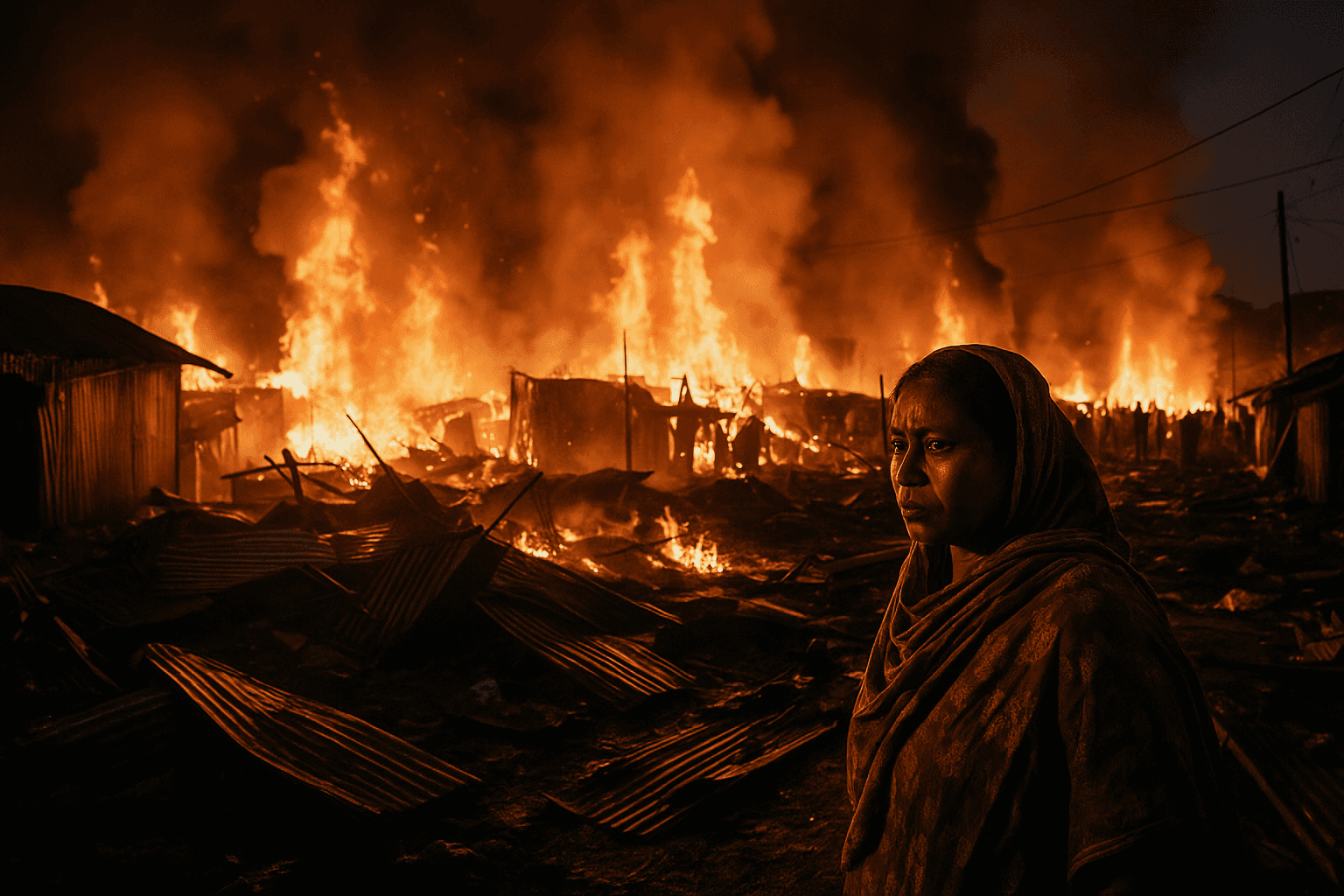Massive Fire Devastates Dhaka Slum, Thousands Left Homeless
A huge blaze tore through Korail, one of Dhaka’s largest slums, destroying rows of tin roofed shanties and rendering thousands without shelter. The scale and speed of the fire underscore persistent governance failures in urban safety, and raise urgent questions about how Bangladesh will protect its most vulnerable residents.

A large fire swept through Korail, one of Dhaka’s biggest and most densely populated informal settlements, on the evening of November 25, 2025, gutting rows of tin roofed shanties and leaving thousands homeless. Authorities deployed at least 19 fire engines to the scene, but narrow lanes and heavy traffic hampered access and firefighters battled the blaze for more than five hours before it was brought under control, Reuters reported.
Officials did not provide immediate casualty figures at the time of the report. Residents described near total destruction of homes and belongings, and relief agencies and local authorities warned of an urgent need for shelter, food and medical supplies for those displaced. Korail, long emblematic of rapid urban growth and inadequate infrastructure in Dhaka, again found itself at the center of a disaster that will have immediate humanitarian and longer term economic consequences.
The fire adds to a grim pattern of repeated, sometimes deadly slum fires in Bangladesh that analysts and residents attribute to lax regulation and poor enforcement. Informal housing clusters are often built with flammable materials and dense wiring, and lack formal planning and reliable public services. When fires occur, limited road access and congestion make emergency response difficult, amplifying damage and displacement.
Economically the effects are concentrated and immediate. Thousands of low income households now face the loss of assets that represent a lifetime of savings. Informal businesses that operate from the settlement will suffer cash flow disruptions and lost inventory, reducing incomes for households already living at the margin. Municipal authorities will need to mobilize emergency spending for temporary shelters and basic supplies, while non government organizations and community groups shoulder much of the relief work. The disruption also puts pressure on nearby markets for construction materials and rental housing, which can drive up short term prices and exacerbate housing insecurity.

Policy failures that surface in the aftermath are not new. Urban planners and development experts say preventing future disasters requires a combination of stepped up enforcement of safety standards, investment in basic infrastructure such as wider access lanes and reliable electricity, and inclusive approaches to land tenure that incentivize safer construction. Without measures to integrate informal settlements into city planning, the structural risk of repeated conflagrations will persist.
Long term trends make these fires more consequential. Rapid urbanization has expanded the size of informal settlements across South Asia, and the frequency of such emergencies exposes governance gaps in disaster preparedness and social protection. In the immediate term authorities face the twin challenges of meeting urgent humanitarian needs and preventing a recurrence. How Dhaka responds will matter not only for the thousands displaced this week, but also for the resilience of a city that houses millions in dense, often precarious neighborhoods.


